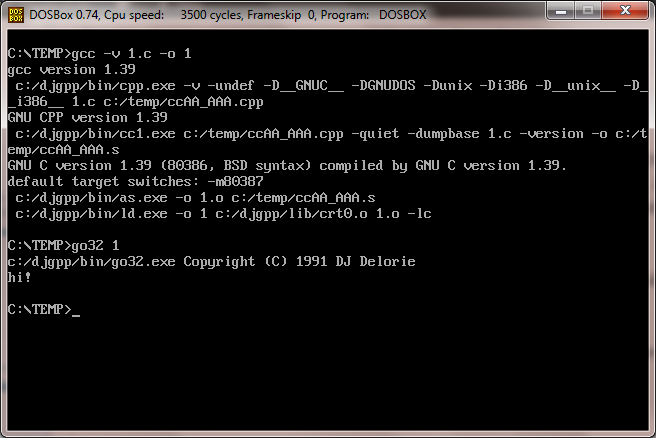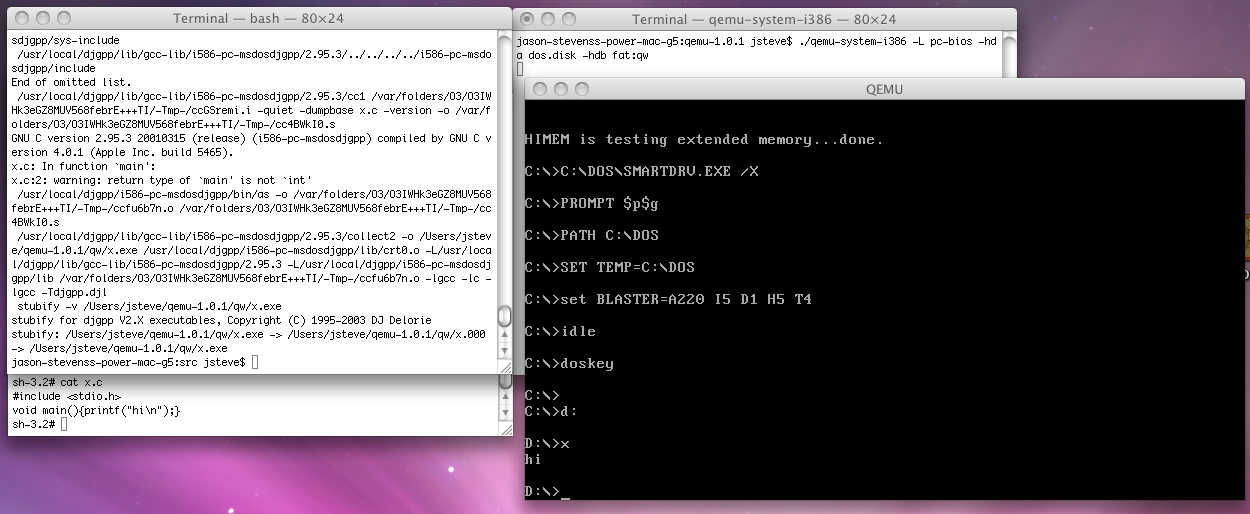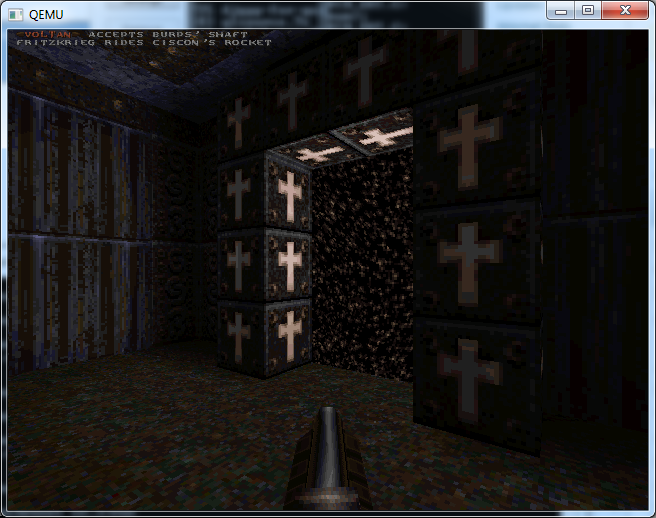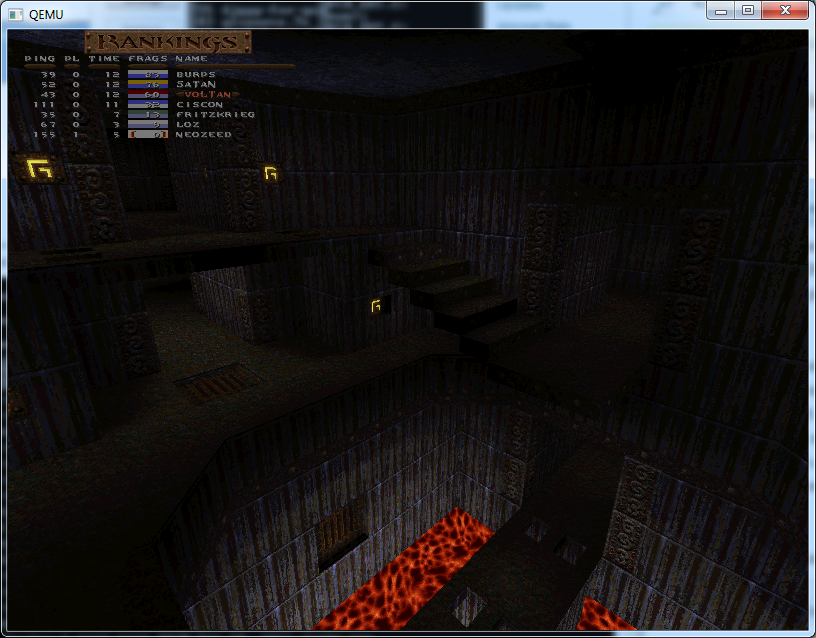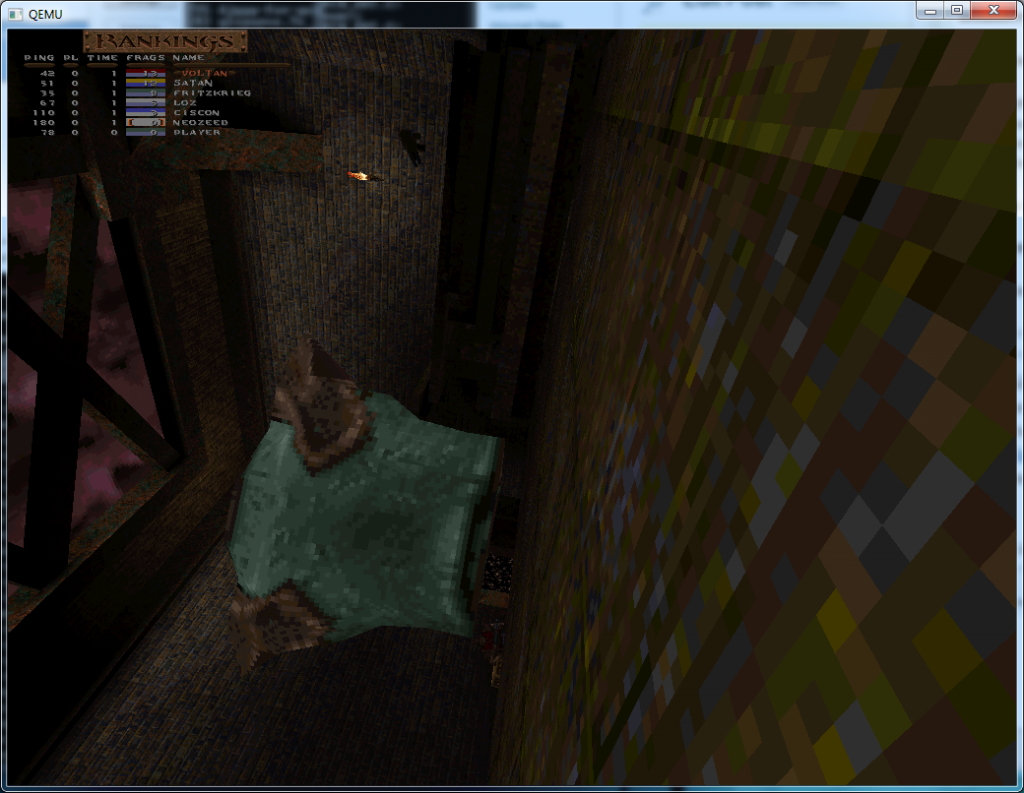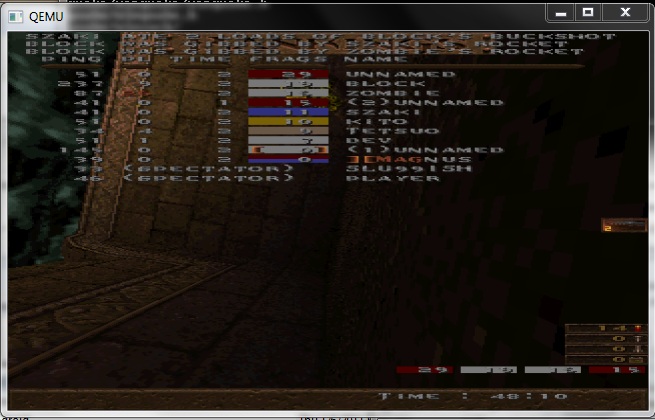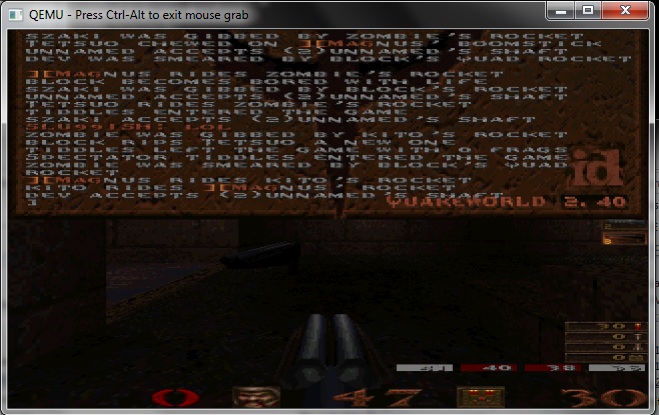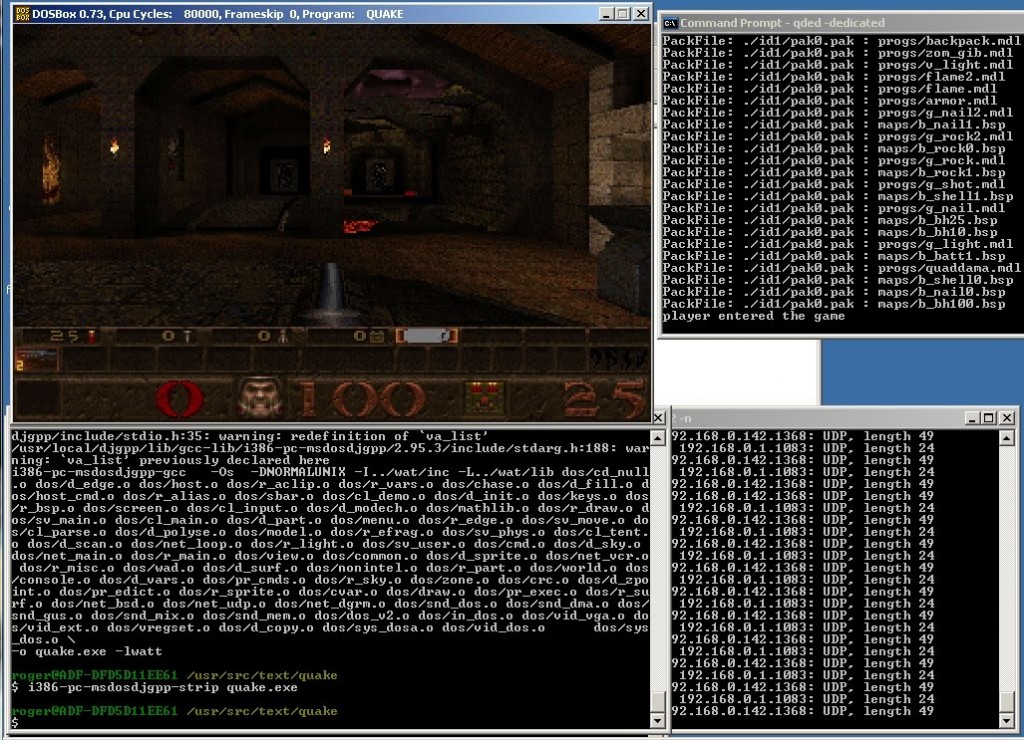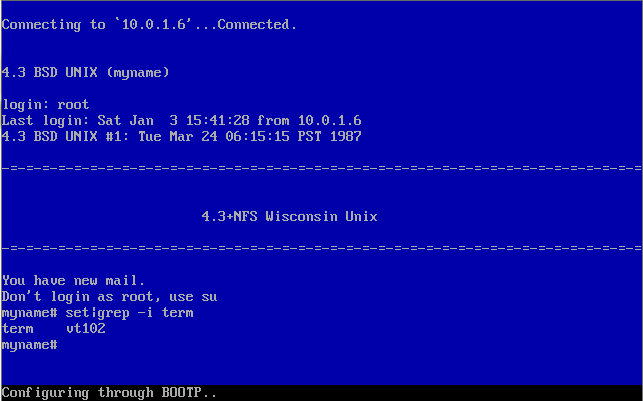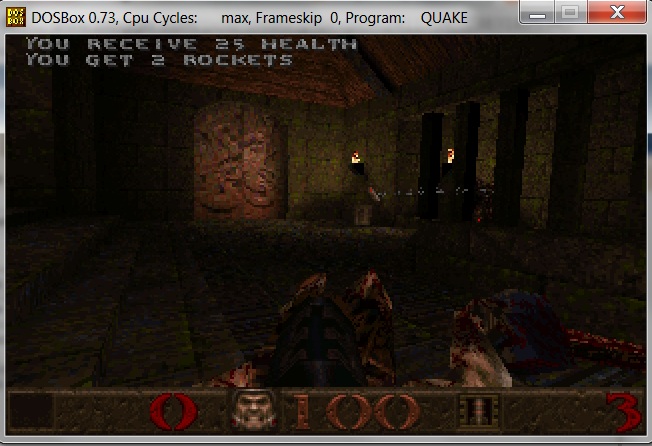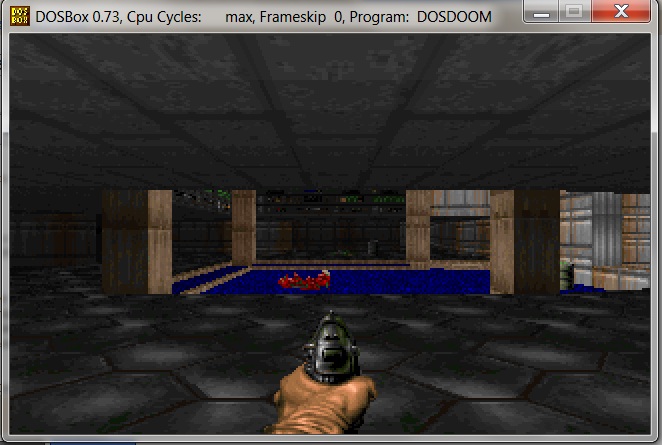So building on DOOM, I thought I’d try to build a djgpp cross compiler from my main OS X box, as compiling under DOSBox is… just too slow. Luckily Delorie has a page on building a cross compiler.
I started out with binutils-2.9.1, just as he does, with a few things thrown in…
First I had to run configure like this, as OS X didn’t exist back then, let alone x64 cpu’s..
./configure --target=i586-pc-msdosdjgpp --host=i386-netbsd --prefix=/usr/local/djgpp
Next the following error is thrown…
strerror.c:463: error: conflicting type qualifiers for ‘sys_nerr’
So I just edited libiberty/strerror.c, and commented out the following line.
Next up was a strange error in gas/targ-cpu.h
targ-cpu.h:374: error: array type has incomplete element type
targ-cpu.h:378: error: previous declaration of ‘flag_16bit_code’ was here
I simply commented out the lines.
Then later while compiling gas/write.c it bombs out because of an undefined type.. One of which was commented out in targ-cpu.h . The easiest fix is to go to the start of the relax_align procedure and just add in the definition:
extern const struct relax_type md_relax_table[];
Next up was gcc. I couldn’t get 2.8.1 to build, instead I built gcc-2.95.3.
I had to configure gcc like this:
./configure --target=i586-pc-msdosdjgpp --host=i386-netbsd --prefix=/usr/local/djgpp
And it threw the same error as binutils… with the same fix (commenting out the line in libiberty/strerror.c).
strerror.c:465: error: conflicting type qualifiers for ‘sys_nerr’
I also had an error pop up like this:
./config/i386/i386.c:142:22: error: macro “strcat” requires 2 arguments
And again I just commented it out.
Under OSX the makeinfo parts crashed, so I simply removed them from the makefile. With a little more tweaking the cross compiler was ready!
REMEMBER TO FOLLOW DJ’s steps too!
The cool thing is that now I can run make with the -j4 flags allowing gcc to run on each of the cpu cores letting me build doom in under 3 seconds!
i586-pc-msdosdjgpp-gcc -O2 -DNORMALUNIX dos/doomdef.o dos/doomstat.o dos/dstrings.o dos/i_system.o dos/i_sound.o dos/i_video.o dos/i_net.o dos/tables.o dos/f_finale.o dos/f_wipe.o dos/d_main.o dos/d_net.o dos/d_items.o dos/g_game.o dos/m_menu.o dos/m_misc.o dos/m_argv.o dos/m_bbox.o dos/m_fixed.o dos/m_swap.o dos/m_cheat.o dos/m_random.o dos/am_map.o dos/p_ceilng.o dos/p_doors.o dos/p_enemy.o dos/p_floor.o dos/p_inter.o dos/p_lights.o dos/p_map.o dos/p_maputl.o dos/p_plats.o dos/p_pspr.o dos/p_setup.o dos/p_sight.o dos/p_spec.o dos/p_switch.o dos/p_mobj.o dos/p_telept.o dos/p_tick.o dos/p_saveg.o dos/p_user.o dos/r_bsp.o dos/r_data.o dos/r_draw.o dos/r_main.o dos/r_plane.o dos/r_segs.o dos/r_sky.o dos/r_things.o dos/w_wad.o dos/wi_stuff.o dos/v_video.o dos/st_lib.o dos/st_stuff.o dos/hu_stuff.o dos/hu_lib.o dos/s_sound.o dos/z_zone.o dos/info.o dos/sounds.o dos/i_main.o \
-o dos/dosdoom
real 0m1.174s
user 0m2.626s
sys 0m0.679s
How’s that for fast?
For any curious OS X 64bit users out there you can download my binary toolchain here.
I would imagine that if you stuck with versions of binutils & gcc that build on your platform you too should be able to build a MS-DOS DJGPP cross compiler. And there is nothing like native 64bit tools for building for DOSBox… Oh and DOOM runs just fine, although I guess screen shots of the cross compiled exe is… redundant.

